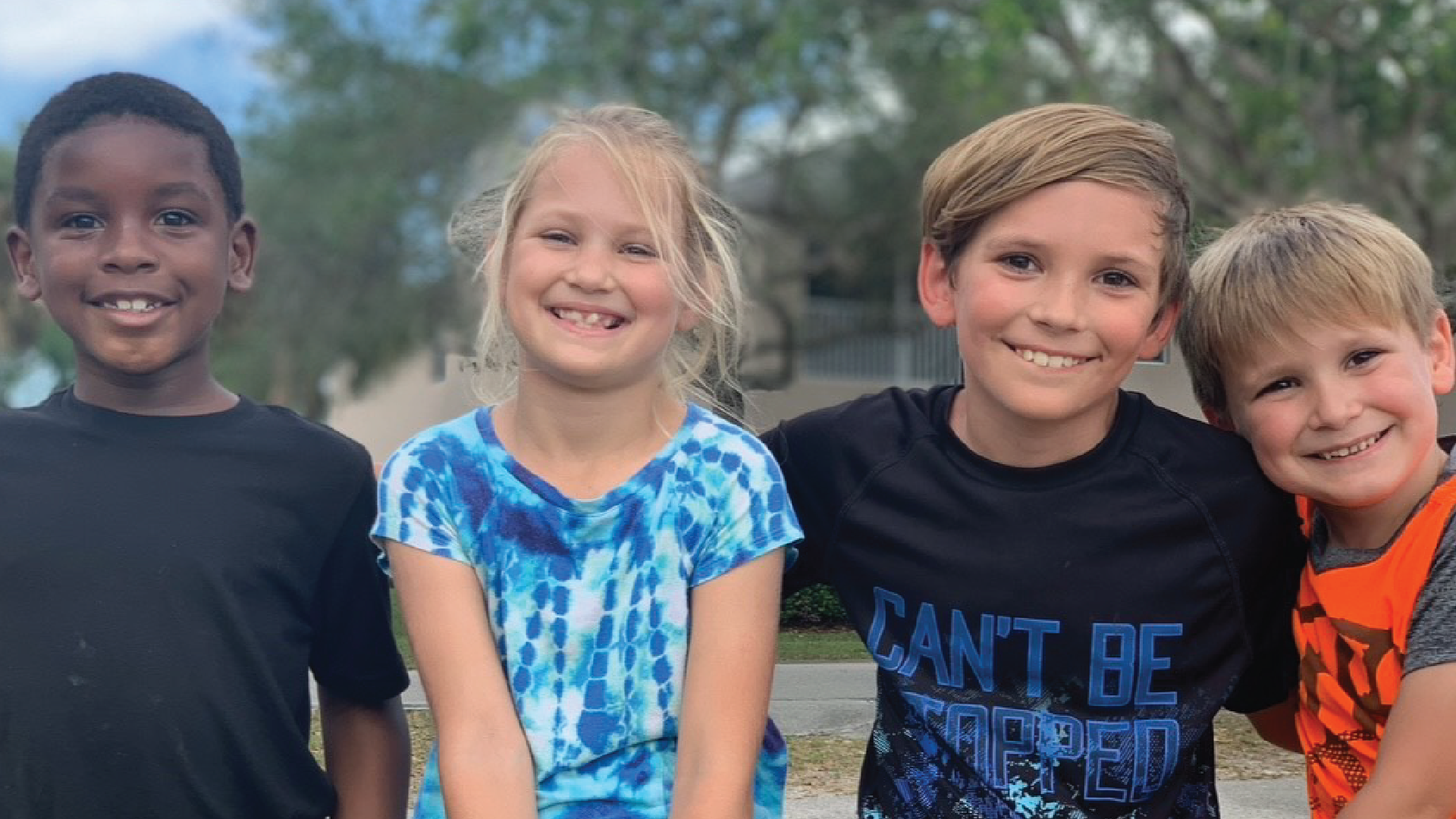Connecting the Hurting With the Helping: How the Local Church Can Help End the Foster Care Crisis
 Savannah Aleckson
Savannah Aleckson
Events Director
Read more from Savannah
Listen to this article:
When Better Together CEO Megan Rose observed the problem of an overwhelmed foster care system in her home state, she came up with a bold solution that raised some eyebrows.
Rose’s home state of Florida ranks third in the nation in the number of foster-care children per capita. While a discouraging statistic, a look below the surface reveals that 60% of these foster care placements are from neglect, not abuse. An even closer look suggests that many neglect situations come from homes in which the mother and/or father are honestly attempting to care for their children but failing to do so sufficiently while struggling to make ends meet.
For Megan Rose, this fact begged the question: Could these children’s parents have effectively met their needs had someone intervened in their situation earlier? Would more families have stayed intact if someone had provided relief or support at certain critical junctures?
She believed the answer was “yes.” And she knew the Church was the right vehicle to provide this critical early intervention.
“When Megan told people her vision–that she was going to get volunteers in the Church to open up their homes, without getting paid, to help vulnerable children–she got laughed at,” Mellissa Foster, Executive Director of Church Partnerships at Better Together, shares with a chuckle. There were other organizations doing similar things at the time, but all took state funding. Megan was determined to create a privately funded solution, unencumbered by the red tape that accompanies government dollars, that was set up well for highly relational interventions.
Though her plan was met with skepticism, Megan began Better Together in 2015, with the Better Families program designed to empower the Church to help at-risk families stabilize and stay together. And with 5,400 children helped since then, and 98% returning to their families and staying out of foster care, the model has been proven successful.
Better Families helps families who are at risk of losing their children to the foster care system by allowing parents to voluntarily put their children in someone else’s home, temporarily, while they get back on their feet.
“We give parents the gift of time and space,” Mellissa explains. “For so many families on the verge of losing their kids, they are in crisis mode. They’re living in their car, they’re trying to figure out how they’re going to feed their children their next meal–they’re just surviving. They’re not thinking about long-term solutions like where they’re going to get a job or what apartment they’ll get to give their kids some stability.” With their children safe and cared for in another location, parents are able to focus on making rapid improvements to their situation and then can take their children back as soon as they feel they are ready.
“A lot of folks are initially very suspicious because they associate us with the government, with foster care,” Mellissa shares. “But when they learn that we’re a volunteer team and that placing their kids in a different home is entirely voluntary and that they can get them back whenever they feel ready without having to jump through hoops, walls start to come down.”
Better Together partners with Florida churches to facilitate their Better Families program by providing the framework, developing relationships with community partners, and managing referrals to the program.The churches simply provide the manpower to assist families in crisis.
There are four primary roles a congregant in a Better Families church can fill to tangibly help struggling families in their community:
Host Family
Host families agree to take in children referred to the program temporarily or on an as-needed basis. The stay can be as short as overnight or as long as 90 days (or potentially longer), with the average stay being 41 days.
The Better Together staff are careful to assist families with appropriate matching. “If a family with two teenage daughters agrees to host, we’re not going to pair them with a family in crisis who has a teenage son,” Mellissa explains. Beyond the purely practical, though, Better Families also attempts to align families based on interests, hobbies, and individual needs.
Knowing that this is the most demanding and daunting role, the Better Families program is designed to give host families necessary breaks.
“We tell hosts that just because you say yes today doesn’t mean you’re saying yes in two years,” Mellissa shares. “You can also do it just once and decide it’s not for you.”
Family Advocates
While host families focus on helping the children, family advocates work primarily with parents to develop relationships and set goals. Knowing that progress is not instantaneous, family advocates are prepared to work with parents for at least six months.
“Our family advocates really get in the weeds with the parents,” says Mellissa. Their job is to develop a deeper understanding of obstacles for the family and help the parents develop and stick to a game plan so that when they’re ready to take their kids back, they’re able to keep them long-term. Better Families, however, is careful to train advocates not to do for, but with– they are big proponents of allowing families the opportunity to take the lead in determining the future they want for themselves.
Mellissa elaborates: “We never do things for the families: We walk them through how to do it. We’re not going to write a job application for them, but we’ll definitely sit next to them at the library and help them as they go through it.”
Job Coaches
For so many families in crisis, the biggest contributor to their situation is the lack of a job. Better Families was designed based on the belief that neglect is preventable–and, often, a good job is exactly the boost that’s needed to enable a family to thrive.
A congregant who is well-connected to local businesses and with a long history of work experience would be a great fit for this position. Typically a two-week commitment, the job coach works with the parent to understand their skills, education level, prior work experience, etc., and then helps the parent find and apply for positions that are a good fit for their unique situation.
Resource Volunteers
These volunteers wrap around host families to provide support. Better Families churches will identify congregants who are dedicated to finding ways to make the host family’s job a little easier.
“If a family takes in four kids, for example, their congregation will tap on resource volunteers to provide a meal, maybe send a gift card for groceries, drop off diapers, pick up the kids from school, offer prayer–things like that,” Mellissa elaborates.
Mellissa shares about one woman who serves as a resource volunteer sewing bibs and burp cloths for babies placed with host families, helping out in the way that she’s uniquely able. Most resources and skills have a place in supporting host families as they take in children.
Better Together was founded on the belief that the best resource to help struggling families is the Church. But why the Church?
“The Church is the best place for people to run to when they’re in crisis,” Mellissa explains. “Historically, the Church has filled this role. It’s our job to love people well.” To that end, Mellissa reminds us of the following verse describing what love in action looks like:
“Be devoted to one another in love. Honor one another above yourselves. Never be lacking in zeal, but keep your spiritual fervor, serving the Lord. Be joyful in hope, patient in affliction, faithful in prayer. Share with the Lord’s people who are in need. Practice hospitality.” Romans 12:10-13
How Your Church Can Get Started:
The Better Families program is currently only offered in Florida. While churches outside Florida aren’t able to partner with Better Families (yet!) to start the program in their own church, or may not have the bandwidth to create their own version, here are some simple, practical ways your church can support vulnerable families in your community right now:
- Host a parents’ night out. How can you find families who need help? Let them come to you! Post flyers in neighborhoods near your church inviting parents to drop off their kids for a movie night, field day, story hour … let your creativity run wild! Don’t forget to grab parents’ contact information and reach out to them post-event to stay connected.
- Start a jobs ministry. A good job is a great way to help families stay together, and also a great way for your congregants to connect with folks who may be struggling. Better Together can equip you to host a Better Jobs Fair, and True Charity Network members receive a 20% discount on Chalmers’ WorkLife Facilitator training.
- Start a Christmas market. Use the holiday season as an opportunity to connect with struggling families by hosting a Christmas market, an empowering twist on a typical toy giveaway. True Charity Network Members: Check out True Charity’s Model Action Plan for step-by-step guidance to start one in your church.
- Build connections with community stakeholders. Get coffee with the director of your local shelter, ask the principal of your local elementary school to give you a tour, buy lunch for the leader at a local foster care placement agency … whatever you do, make sure it’s in-person and friendly. Use that time to identify needs and consider how your church can help. Your church can serve in small ways and, in the future, these connections could prove to be very useful if your church decides to launch a Better Families-type ministry.
If you haven’t yet, be sure to join the True Charity Network for access to all our Model Action Plans, educational content, and other resources to equip churches for effective charity, including the Church Toolkit.
Better Together is a True Charity Network member. You can check out the True Charity Real Results webinar featuring Better Together on the topic of measuring outcomes here. You can connect with them on the member’s portal. If you’re not yet a True Charity Network member, learn more at truecharity.us/join.








Leave a Reply
Want to join the discussion?Feel free to contribute!